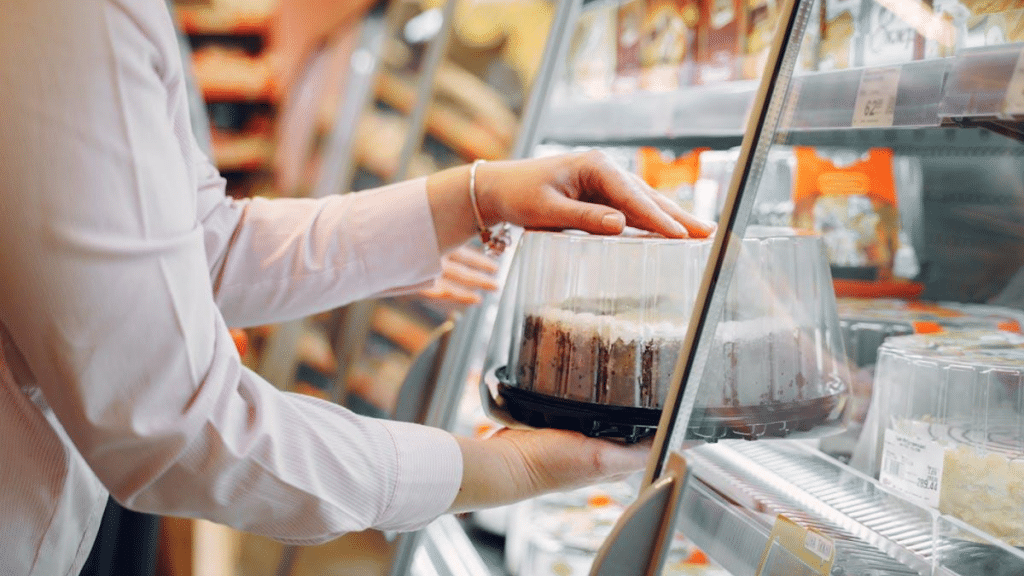In an era defined by heightened awareness about health and nutrition, food safety has evolved beyond simply preventing recalls. It is now about establishing a relationship of trust between food brands and consumers who demand transparency regarding the products they consume.
As society shifts towards more conscientious eating habits, the emphasis on clean-label products and stringent safety measures has never been greater.
At the forefront of this transformation is Keychain, a platform dedicated to ensuring that consumer health remains a priority in the food industry.
The Rise of Clean Labels
The clean label movement marks a significant transformation in the food industry, driven by consumers’ growing desire for transparency and simplicity. “Clean label” products contain minimal and easily recognizable ingredients, avoiding artificial additives and preservatives. This trend reflects a broader societal push for healthier food options and responsible sourcing practices.
Rather than being just a marketing trend, clean labels signify a deeper commitment to health and wellness, prompting brands to rethink their product development and promotion strategies. With consumers increasingly informed, they expect higher standards regarding ingredient transparency, sourcing, and safety practices.
Consequently, this movement has intensified scrutiny on food safety, encouraging brands to reevaluate their processes and ensure compliance with evolving regulations.
Keychain’s Impact on Clean-Label Production
Keychain plays a pivotal role in the clean-label production landscape by connecting brands with manufacturers committed to safety and quality. The platform streamlines the complex food manufacturing process, enabling brands to find partners who maintain high safety standards easily.
By focusing on consumer packaged goods (CPG), Keychain ensures that products meet both federal regulations and the rigorous criteria established by clean-label certification programs.
Through fostering partnerships between brands and manufacturers, Keychain facilitates a smoother journey toward clean-label compliance. This collaboration empowers brands to confidently deliver products aligned with consumer values of health and safety. As transparency becomes increasingly vital, Keychain’s guidance toward reputable manufacturers is essential.
Collaborating with the Clean Label Project
The Clean Label Project is a non-profit organization focused on enhancing transparency in food labeling. By conducting thorough product testing for contaminants beyond federal mandates, the Clean Label Project provides consumers with an added layer of assurance.
Their certification process involves purchasing products from the market and subjecting them to laboratory testing for heavy metals, pesticide residues, and other harmful substances.
Partnering with the Clean Label Project enables brands to strengthen their credibility and showcase their dedication to safety and quality. This collaboration helps brands ensure their products align with consumer expectations and positions them as industry leaders advocating for greater transparency.
The testing performed by the Clean Label Project is invaluable for brands aiming to uphold high safety standards and stand out in a competitive marketplace.
Understanding Food-Grade Materials
Food-grade plastics play a crucial yet often overlooked role in food safety. These materials are specifically designed to safely come into contact with food, preventing harmful chemicals from leaching into products. Food-grade plastics undergo rigorous testing and certification processes to meet established safety standards.
Brands must understand the properties and regulations associated with food-grade plastics to uphold safety standards in packaging. By opting for certified food-grade plastics, brands can further assure consumers of their commitment to health and transparency.
This focus on safe packaging materials enhances consumer confidence and supports the overall goal of promoting food integrity.
The Evolution of Food Safety Regulations
As consumers become more knowledgeable and advocate for their rights, there is an increasing demand for stricter regulations and transparent labeling practices. Legislative measures, such as California’s Food Safety Act, are at the forefront of this shift, prohibiting harmful additives and mandating comprehensive testing of food products. These evolving regulations compel brands to stay ahead of changes to maintain compliance and consumer trust.
By proactively adopting clean-label practices and seeking third-party certifications, brands can successfully navigate the intricate regulatory landscape.
This forward-thinking approach not only ensures compliance but also distinguishes brands in a marketplace where consumer trust is essential. As regulations tighten, brands prioritizing safety and transparency will be well-positioned for success.
Leveraging Consumer Trust for Market Success
Building consumer trust through transparent and safe food practices is both an ethical obligation and a smart business strategy. Brands that emphasize food safety and transparency are more likely to see increased consumer loyalty and market share. Research shows that a substantial majority of consumers are willing to pay more for products they perceive as healthier and safer.
Investing in clean-label certifications and adhering to rigorous safety standards not only sets brands apart in a competitive marketplace but also reduces the risks associated with food safety breaches.
A Call to Action for Brands
In summary, adapting to the changing landscape of food safety regulations and consumer expectations is crucial for brands aiming to thrive in today’s market. Leveraging platforms like Keychain can enhance a brand’s commitment to food integrity and consumer health.
As the demand for transparency and safety grows, brands embracing these principles will not only comply with regulations but also lead efforts toward creating a healthier, more trustworthy food system.
Keychain is ready to support brands on this essential journey, ensuring that food safety remains a priority in industry practices. By cultivating a culture of integrity and transparency, we can all contribute to a safer and healthier future for everyone.
